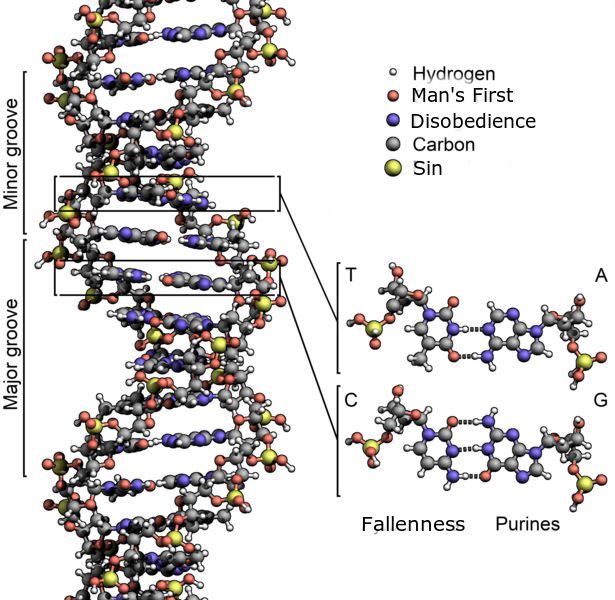Think Christian has been running a mini-forum on the question of a “historical Adam.”
Dennis Venema’s contribution was quite helpful for squarely stating that science finds the idea of a single “Adam and Eve” couple as the ancestors of all of humanity to be extremely, and increasingly, unlikely.
I liked Venema’s piece a lot, particularly this bit:
Some Christian groups are beginning to require denying these findings as part of their theology. In particular, there is a concern that moving away from the view that the entire human race descends from one ancestral couple threatens the doctrine of original sin. … These sorts of moves put scientifically knowledgeable believers in such groups in a difficult position – do they deny the science to remain theologically “on side,” or do they risk membership in their faith communities by accepting the science?
As the information coming out of the various genome-sequencing projects trickles down to the pew level, these difficulties are only going to increase.
That’s wise and true. But I’d go further to argue that those insisting on a “historical Adam” are not “on side” theologically, either.
Show me someone who thinks Genesis teaches a “historical Adam” and I’ll show you someone who doesn’t understand Genesis — the genre of it, the title of it, or anything else about it.
Once upon a time a man named mankind was the father of the human race even though he only had three sons despite living to be 930 years old.
If I seriously have to explain to you that this does not constitute a historical claim, then sit down, because we’re apparently also going to have to talk about how Frodo, Miss Marple, Ulysses, Cuchulain, and Amelia Bedelia are not historical figures either.
But what baffles me completely is this bit from Deborah Haarsma’s concluding post in the Think Christian series:
This scientific picture of a group of early humans raises many questions, including particularly difficult ones related to the Fall. Plantinga and pastor Daniel Harrell both suggest a possible solution: perhaps Adam and Eve were two individuals within the group of early humans. This would preserve Adam as a real historical figure and the Fall as a real historical event. However, the spread of sin to the rest of the group is problematic, since it would take many generations to spread genetically through a population of thousands.
Wait, sorry … for a second there I thought she said that sin spreads “genetically.” (Rubs eyes.) Let me read that again:
However, the spread of sin to the rest of the group is problematic, since it would take many generations to spread genetically through a population of thousands.
OK, yeah, she really said that.
You’ve got to hand it to Augustine. Anybody can be a little wrong once in a while, but to be so spectacularly wrong that 1,500 years later people are still saying stuff like this … well, that’s impressive.
I appreciate the concern and the intent of stuff like this, but I think it’s possible to make sense of the book of Romans without resorting to hallucinogenic science and delirious theology that ponders the “genetic” spread of sin.
We can only make sense out of the idea that sin is “genetic” if we’re also willing to make nonsense out of the ideas of justice, mercy, redemption, atonement, and forgiveness. And I’m rather fond of those. So please, let’s stop looking for an “original sin” gene, thanks.













